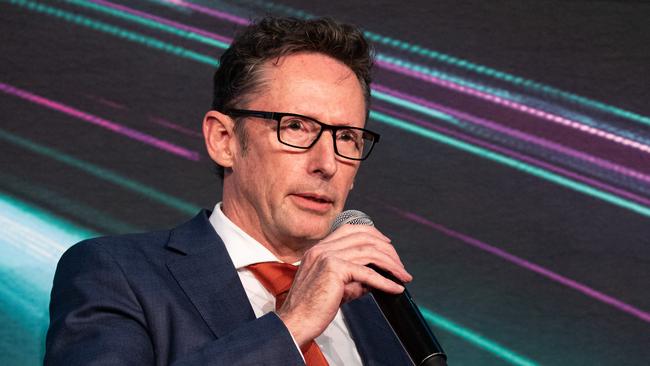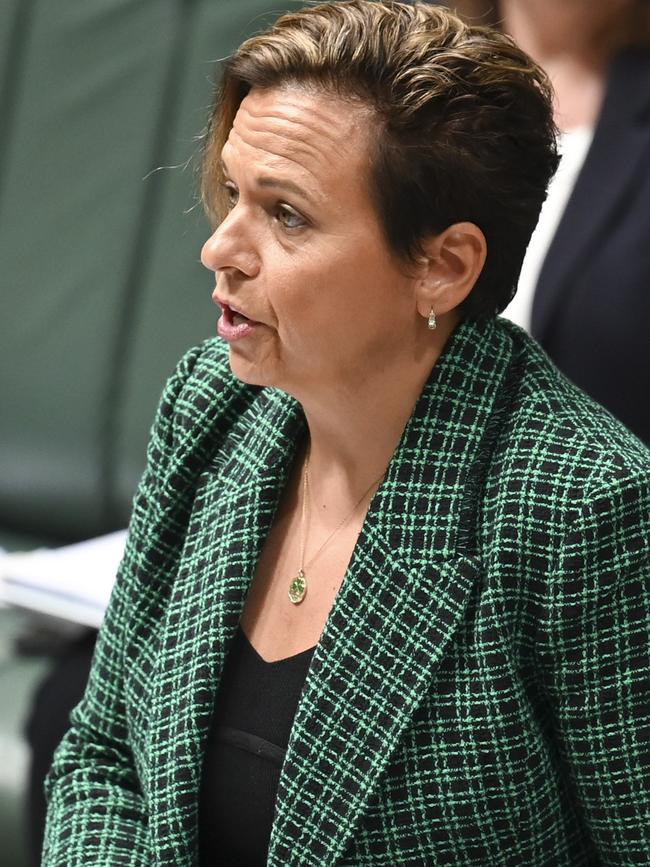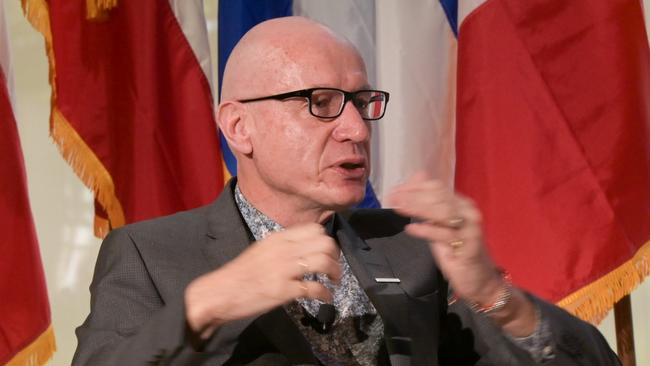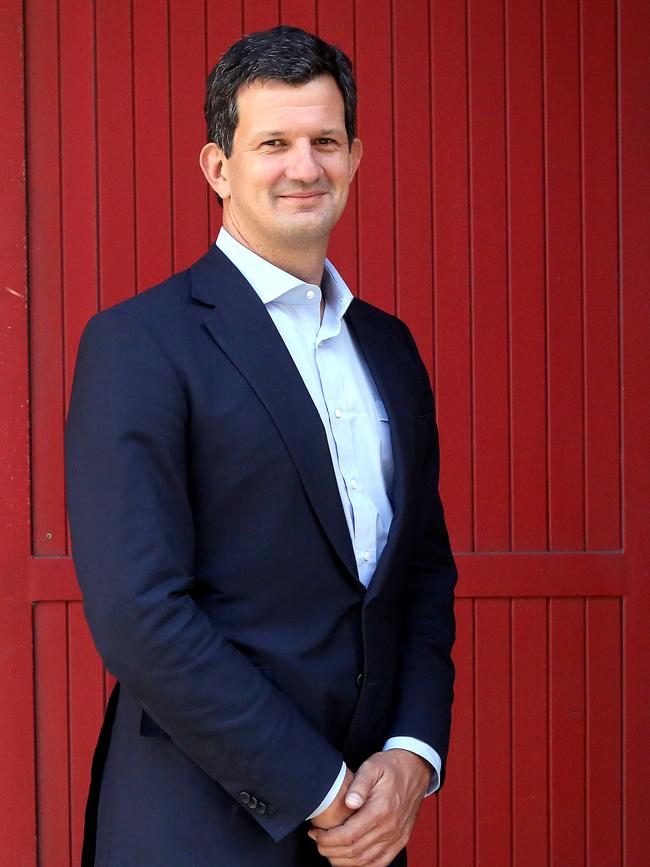AI news targeted in media code
The Albanese government has left the door open for a potential crackdown on AI-generated news and training models as it forces the big tech companies to negotiate with media publishers.

The federal government has left the door open for a potential crackdown on AI-generated news and training models as it forces the big tech companies to negotiate new deals with media publishers.
Assistant Treasurer Stephen Jones and Communications Minister Michelle Rowland have backed all five recommendations of Treasury’s review of the News Media Bargaining Code – which has sparked similar laws across the world.
The code, introduced in 2021, has resulted in tech titans Meta, owner of Facebook, and Google paying Australian media publishers more than $200m to publish news stories on their platforms.
But tech giants have been pushing back on further changes, with Google and Facebook blocking news in Canada after Ottawa introduced similar laws earlier this year – although Google later relented. And Treasury says a “critical test” of the code’s effectiveness will be the “extent to which a new round of agreements is made” when the current deals expire.

In an effort to strengthen Australia’s code, Mr Jones and Ms Rowland have commissioned a further review to be completed in early 2025 to ensure it remains fit for purpose, given the “technological environment in which news businesses and digital platforms operate is evolving quickly”.
The biggest technological advancement has been the widespread adoption of generative AI platforms across the economy, and ensuring the creators of the content that is used to train these models are paid fairly.
“The review made sensible recommendations to strengthen the code for the future, and we are glad to support them,” Mr Jones said.
“We want to see news outlets and digital platforms come together and negotiate in good faith.”
And if they don’t, Mr Jones said the government would use its legislative powers to force mediation, known as designation.
“Let us be very clear: we already have the power to designate digital platforms and we are prepared to use it.”
Treasury’s review did not mention AI specifically, instead citing repeatedly rapidly evolving technology. The government is yet to make a decision on reining in AI but the commissioning of another review aims to ensure that the code remains up to date regarding its coverage of the tech companies and technology used.
“While this review finds that, overall, the code has performed well against its objectives in its first year, the commercial and technological environment in which news businesses and digital platforms operate is evolving quickly,” Treasury said in its report.
“We also understand that most, if not all, commercial agreements will expire over the next 2–3 years. Arguably, a critical test of the code’s effectiveness will be the extent to which a new round of agreements is made.”
Robert Thomson, chief executive of News Corp – owner of this masthead – has been vocal about his concerns regarding AI, including the potential for biased or inaccurate content, replacement of jobs and use of publishers’ content without permission.
Crucially, Mr Thomson says media companies should be compensated for its intellectual property that is already being used to train generative AI engines, the most popular of which is Microsoft-backed ChatGPT.

“There has been much discussion, some of it enlightened, some not so, about the potential impact of generative AI and there is no doubt that it will profoundly affect the media business – candidly, generative AI may pose a challenge to our intellectual property and to the future of journalism,” Mr Thomson said earlier this year.
“As those who have experimented with ChatGPT will be aware, the answers are only as insightful and factual as the source material and are more retrospective than contemporary.”

Steve Hasker, chief executive and president of Thomson Reuters – one of the world’s oldest and biggest news and information companies – agreed.
“We are unequivocally on the same side of this issue,” Mr Hasker told The Australian.
“We spend a lot of money generating what we think is world class, independent, fact-based news, and ensuring that there is a viable business model to support that is incredibly important for the functioning of financial markets, of our political system and really society itself.”
While Google finally struck a deal with Canadian news outlets – involving making annual payments in the range of $C100m ($111.4m) – late last month. But Meta has stood firm, banning the distribution of news from Canadian media outlets across its Facebook platform.
“We have been transparent and have made it clear to the Canadian government that the legislation misrepresents the value news outlets receive when choosing to use our platforms,” Meta said in a statement earlier this year when it pulled news from Canada.
“The legislation is based on the incorrect premise that Meta benefits unfairly from news content shared on our platforms, when the reverse is true. News outlets voluntarily share content on Facebook and Instagram to expand their audiences and help their bottom line. In contrast, we know the people using our platforms don’t come to us for news.”
Meta, Google and TikTok declined to comment about the latest developments in Australia’s News Media Bargaining Code.




To join the conversation, please log in. Don't have an account? Register
Join the conversation, you are commenting as Logout